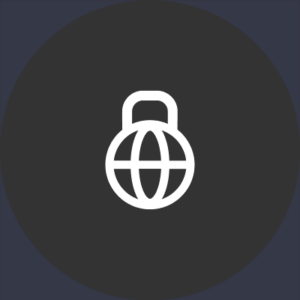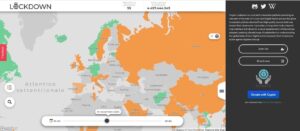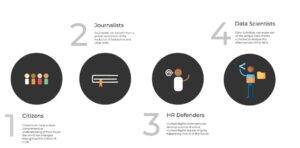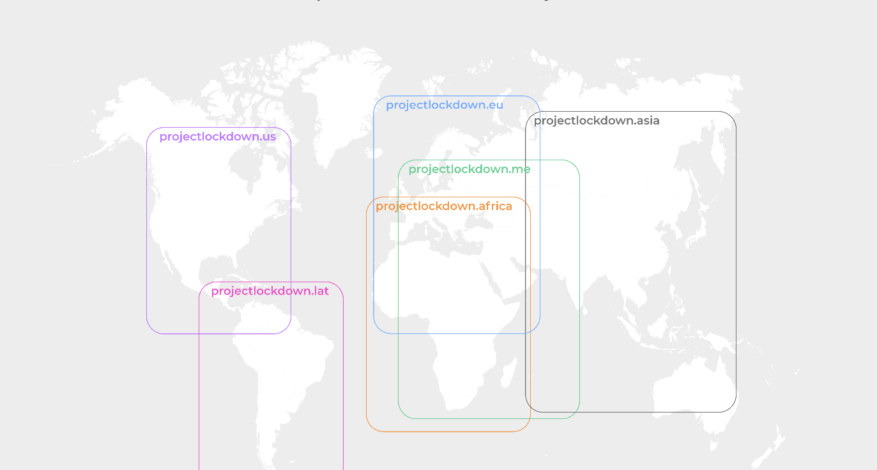PROJECT LOCKDOWN: KEEPING RIGHTS UNDER CONTROL
In the late months we have had the chance to see how differently the various countries have dealt with the Covid-19 pandemic: some countries have chosen a full-fledged lockdown, in some others rules were not as strict, some governments have pretended the problem doesn’t exist and so on.
Thing is, most of the needed measures to prevent Covid infections are bound, by force of circumstances, to restrict the citizen’s freedom. Of course, there are not alternative options to follow, but one can ask:
Will these limitations have an impact even after the pandemic is over?
Spanish programmer Jean Queralt has asked himself this question at the beginning of the pandemic and decided to answer by founding Project Lockdown.
What is Project Lockdown?
 Project Lockdown is an open-source, interactive platform that aims to recollect data about the NPI (Non-Pharmaceutical Interventions) that have been implemented all over the world in response to Coronavirus. “We especially care about the repercussions the measures will have on human and digital rights”, tells Marta Margiulo, one of Project Lockdown’s collaborators. “We look in particular at values such as Community, Accountability, and Impact. On the platform, we write whether a certain country has imposed a curfew or not if the schools are closed if internet access is guaranteed, that kind of thing. All of the data we publish come from official sources, and the fact that we are all located in different countries is actually a fortune for us; sometimes an official website is not accessible in a country but can be viewed in another.”
Project Lockdown is an open-source, interactive platform that aims to recollect data about the NPI (Non-Pharmaceutical Interventions) that have been implemented all over the world in response to Coronavirus. “We especially care about the repercussions the measures will have on human and digital rights”, tells Marta Margiulo, one of Project Lockdown’s collaborators. “We look in particular at values such as Community, Accountability, and Impact. On the platform, we write whether a certain country has imposed a curfew or not if the schools are closed if internet access is guaranteed, that kind of thing. All of the data we publish come from official sources, and the fact that we are all located in different countries is actually a fortune for us; sometimes an official website is not accessible in a country but can be viewed in another.”
This summer Project Lockdown has been among the finalists in the European hackathon EU vs Virus.
An international team
 Project Lockdown is sustained by a vast group of volunteers that are based all over the world and are divided into different teams according to their best abilities: there are the editing team, the human resources team, the team who looks for information, and so on. Marta is part of the communications and marketing team. “I mostly manage our Twitter account, but in the past, I’ve dealt with press releases as well”, she explains. “We actually have three accounts on Twitter: the one I am responsible for, which I use to spread awareness about relevant topics, the official one, and the HR, which is the one to contact if you want to join us.”
Project Lockdown is sustained by a vast group of volunteers that are based all over the world and are divided into different teams according to their best abilities: there are the editing team, the human resources team, the team who looks for information, and so on. Marta is part of the communications and marketing team. “I mostly manage our Twitter account, but in the past, I’ve dealt with press releases as well”, she explains. “We actually have three accounts on Twitter: the one I am responsible for, which I use to spread awareness about relevant topics, the official one, and the HR, which is the one to contact if you want to join us.”
 It is possible to help Project Lockdown for organizations as well as individuals. There have been some American scholars who have spent some time working for Project Lockdown as interns; it might be interesting to find out whether students from other countries can enjoy this chance, too.
It is possible to help Project Lockdown for organizations as well as individuals. There have been some American scholars who have spent some time working for Project Lockdown as interns; it might be interesting to find out whether students from other countries can enjoy this chance, too.
Whoever wishes to take part in this project has only to fill in the application form available on the website.
Project Lockdown reminds us that even in difficult times we must not lose focus on what’s really important: our dignity and freedom as human beings.

